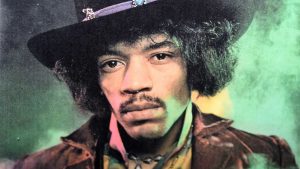Following their stint as Phillip Goodhand-Tait’s backing band and the recruitment of veteran R&B keyboard player Peter Bardens in 1971, Camel set about establishing themselves as a force to be reckoned with. The band toured the UK, Switzerland, Belgium, and Holland playing support gigs to the likes of Barclay James Harvest, Gong, Hawkwind, and the Pink Fairies.
On August 2, 1972, Camel signed to MCA Records and on August 15 they were at Morgan Sound Studios where they spent a little over a week recording their self-titled debut album. It’s a collection of road-honed songs with four written by guitarist Andy Latimer, one co-written with drummer Andy Ward, and the other three songs from the pen of Peter Bardens.
The opening song “Slow Yourself Down” is trademark Camel, with Bardens’ intricate keyboard work and Latimer’s dynamic guitar playing. The first of Barden’s compositions is “Mystic Queen,” so redolent of the time and so very indicative of what would make Camel so popular. The two songs that make up the rest of Side One are “Six Ate” and “Separation,” both show Latimer’s love of jazz, another facet of Camel’s progressive credentials.
Side two opens with “Never Let Go,” another Latimer song that also became the band’s first single when it was released in November 1972. Featuring Barden’s vocals, it developed into one of the band’s best-loved songs. The second track, “Curiosity,” is another Bardens original. Also the B-side of their debut single, it’s a trademark Bardens song which features his evocative keyboard work. “Arubaluba,” another of his compositions, is the album closer and the kind of number that makes a prog fan go weak at the knees – all ascending riffs, time changes, and of course instrumental dexterity.
Camel was finally released on February 28, 1973. But despite being such a very good record it met with limited commercial success. That didn’t bother Camel, as they carried on touring and gigging hard despite being dropped by MCA. The band got new managers in Geoff Jukes and Max Hole of Gemini Artists and moved to Decca Records, where they would remain for the next ten years to immense acclaim.




